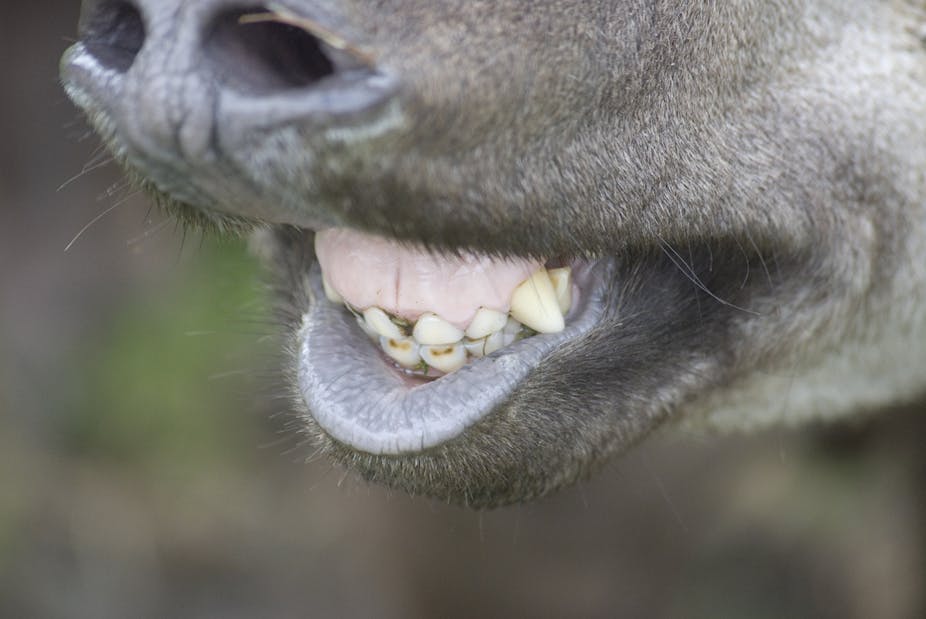Even among the experts who don’t question our right to use and kill animals, there is disagreement over what animal welfare actually means. With the government calling for a review of animal welfare standards, we need to develop a clearer idea of what matters for an animal’s welfare.
For some experts, animal welfare refers to an animal’s ability to cope with its environment. Coping is assessed with reference to a range of physiological, behavioural and immunological factors.
For other experts, an animal’s welfare is good if it has pleasant feelings (or at least the absence of aversive feelings). To grade welfare this way we need to answer important questions such as whether animals always feel bad in confinement which stops them engaging in natural behaviours.
More recently, there has been debate over defining welfare in terms of animals’ needs. In line with this view, good welfare may amount to no more than providing food and water and protecting from extremes of heat and cold.
While the experts may disagree on the meaning of welfare, they accept that welfare is a quantifiable scientific concept that ought to be measured in a dispassionate way. Gauging the welfare of an animal is thus akin to measuring an animals’ weight or the length of its tail.
As useful as the scientific approach to animal welfare may be for predicting and controlling animal behaviour, its overall utility is limited.
Viewing animal welfare exclusively in scientific terms means that expert opinion may be out of step with the concerns of ordinary citizens. The risk is that science-driven welfare thinking may produce politically “unsustainable” welfare policy.

Most people’s views about animal welfare are informed by their history with animals and their imaginative identification with animals that are being abused. Their conception of themselves as idealistic or commonsensical, romantic or scientific, progressive or conservative, sentimental or hard-nosed is also likely to influence their views on welfare.
It is unlikely that people upset by animal abuse will take comfort from scientific evidence telling them the animal was coping well or that it was not feeling all that bad.
Similarly, no amount of research into housing conditions, methods of slaughter and transport practices will likely convince people that good welfare is consistent with housing animals in battery cages and sow stalls or cramming them into road-trains and live-export ships.
Politicians, bureaucrats and industry representatives need to bear in mind the history of animal welfare.
There is a clear trend in animal welfare policy — meaningful change may be born out of the activism of a few but it is nurtured by the decency of the many. We’ve seen its development in Britain, from the founding of the RSPCA in response to the mistreatment of animals in the streets of Victorian England, to the landmark Brambell Committee in 1965 after public outcry about factory farming. In the US, the Laboratory Animal Welfare Act grew out of public concern following media reports of animal abuse by scientists. Here in Australia, we saw the unprecedented reaction following Animals Australia footage of abuse in the live export trade and Indonesian abattoirs.
One genuinely progressive step would be for the guidelines to promote values more in line with the views of ordinary citizens. While it is true that people’s views about animal welfare are not uniform, there is a range of progressive values such as dignity, respect, pleasure and vulnerability starting to gain traction in the animal welfare literature. Including these values in the guidelines would reflect the plurality of opinion and answer the call for change implicit in recent public outcry.
Is it sustainable to continue to regard killing animals and animal rights as altogether distinct from the issue of animal welfare?
Unprecedented public interest in the treatment of animals legitimates new thinking about animal welfare. Simply tweaking the existing guidelines and enshrining the values, framing assumptions and practices of the status quo would be unsustainable.
Read another view on revising the animal welfare standards here.

